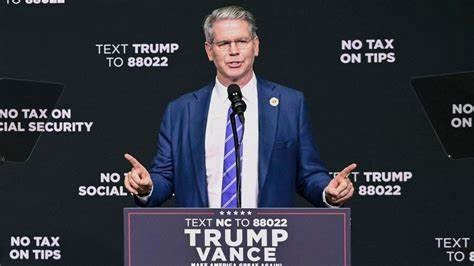U.S. Treasury Secretary Scott Bessent issued a sweeping call on Wednesday for the International Monetary Fund (IMF) and the World Bank to return to their original global monetary stability and economic development missions.
Resources for this report:
Treasury Secretary Scott Bessent Remarks before the Institute of International Finance
Speaking during the spring meetings of the Bretton Woods institutions, Bessent warned that their increasing focus on climate change, social policy, and ideological ventures has compromised their effectiveness. His message was not just a critique—it was a blueprint for realignment, one that mirrors his broader economic vision: prioritize fundamentals, uphold discipline, and empower growth through strategic focus, not ideological expansion.
In a decisive speech that may mark a turning point in U.S. global financial policy, Treasury Secretary Scott Bessent called out what he termed the “mission creep” of the IMF and the World Bank. His remarks, delivered at the Institute of International Finance and circulating widely on platforms like X, underscored a clear message: it’s time to restore the institutions to their foundational purpose.
“These institutions have enduring value,” Bessent said. “But mission creep has knocked them off course. We must enact key reforms to ensure the Bretton Woods institutions are serving their stakeholders—not the other way around.”
Bessent expressed deep concern over the IMF’s increasing attention to issues like climate change, gender, and social justice—areas he believes fall outside the IMF’s primary role of fostering global monetary cooperation and financial stability. “The IMF needs to focus on its mandate,” he said plainly. “And sometimes, the IMF needs to say ‘No.’ It has no obligation to lend to countries that fail to implement reforms.”
Turning his attention to the World Bank, Bessent advocated for a “tech-neutral” stance in energy investment. He pushed back against ideologically driven limitations on fossil fuels, asserting that affordability must guide development financing. “In most cases,” he noted, “this means investing in gas and other fossil fuel-based energy production,” though he added that renewables paired with systems to manage energy latency are also viable.
Bessent’s stance is not just institutional—it reflects a deeper economic doctrine. His comments tie into the Trump administration’s broader policy, including Bessent’s own support for the permanence of the 2017 Tax Cuts and Jobs Act. Consistent with this approach, Rolling Stone reported that Bessent recently defended tax cuts for billionaires and high-income job creators, saying, “We should not penalize those who drive innovation and employment.” His message: economic growth stems from unleashing enterprise, not burdening it with punitive taxation or global activism.
But that may mean something else.
In an April 22 Washington Post article, Bessent is reported to have expressed openness to various tax policy ideas, including the possibility of raising taxes on Americans earning more than $5 million per year. This consideration is part of broader internal discussions within the Trump administration regarding potential adjustments to the GOP’s 2025 tax legislation. While some administration officials, such as Vice President JD Vance and budget director Russell Vought, have supported such measures, the idea faces significant opposition from other Republican leaders and advisers, who argue that it could undermine economic growth and the party’s tax-cutting agenda. The deliberations reflect ongoing debates within the party about balancing tax policy with fiscal responsibility.
Critics have voiced concern that continuing tax cuts for the rich ignore urgent global challenges and exacerbate inequality. Yet for Bessent, the path forward lies in clarity of mission and economic realism, not distraction. “America First does not mean America alone,” he reminded the audience, urging allies to join in realigning the IMF and World Bank with their core objectives.
What we know for sure is Bessent’s speech reveals a clear vision: one rooted in fiscal discipline, strategic realism, and a belief that growth—not ideology—must be the compass for global finance. In calling for reform, Bessent is not abandoning the world stage. He’s challenging it to do better—by doing what it was created to do.
